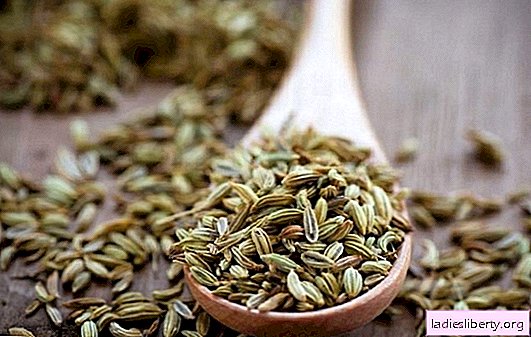
The appearance of mucus in a newborn in the stool occurs from the first days of the child's life.
In the first year of life, mucus in a newborn in a stool is a common occurrence: it is often found and not always a pathology.
Normally, mucus is secreted by the mucous membrane of the stomach and intestines and envelops the walls of the gastrointestinal tract.
It performs important functions:
• protects the mucosa from physical and chemical damage;
• helps promote food.
Mucus in a newborn in a stool - normal or pathological
In a healthy child, in the intestines, the mucus is completely mixed with feces and is not visible in the feces. If pathological conditions occur, mucus appears in the newborn in the stool, the causes of which may be different. They are not associated with bowel diseases.
In newborns, green stools with mucus often appear. This is the so-called transitional chair. It can be liquid, occurs in connection with the formation of intestinal microflora and the gradual inclusion in the functioning of the pancreas, gall bladder.
During the first month of life, a child has, for example, a deficiency of lactase, an enzyme that breaks down milk sugar (lactose), so jelly-like inclusions are observed in the bowel movements. By the end of the first month of life, the chair is established.
Mucus in a newborn in stool: physiological causes
If there is mucus in a newborn in the stool, the reasons can be physiological and pathological. The most common are:
1. Feeding regime: in the case of large gaps between feedings and a large volume of food at a time, fermentation occurs in the intestine and mucus forms.
2. Feeding: its early introduction, non-observance of the order of food entry is the impetus for the appearance of mucus in the stool. It is necessary to refuse the introduction of new products to normalize the stool. In the case of complementary foods, the chair is an indicator: its changes require a pause or rejection of that "suspicious" meal.
3. Use of unsuitable mixtures. If the mixture is improperly selected, the child may experience an allergy to its components.
4. A large number of fresh fruits and vegetables, as well as products that enhance flatulence, in the diet of a nursing mother lead to an increased content of mucus in the stool of the newborn. Therefore, you can not eat large quantities of fruits and vegetables: you must focus on the condition of the child.
5. Improper feeding: if the baby is applied for a short time to the breast, the newborn manages to suck out the front liquid milk. Namely, the milk contains lactose, which creates a feeling of fullness.
5. The reaction to certain drugs: for example, the child’s body reacts with increased mucus formation to take simethicone. Preparations with simethicone are used to stop intestinal colic in newborns.
Pathological mucus in a newborn in the stool - pathological reasons
In addition to physiological reasons, the appearance of mucus in the stool of a healthy child is often a sign of serious illness requiring urgent medical attention or conditions that need correction.
1. Intestinal infections of various etiologies: dysentery, salmonellosis, rotavirus, etc. In addition to mucus, blood can be present in the feces. Accompanied, in addition to diarrhea, vomiting, fever, severe lethargy, refusal to eat. Leads to dehydration. The condition requires urgent hospitalization.
2. Dysbacteriosis: the appearance of mucus in a newborn in the stool is the most common cause of dysbiosis.
3. Atopic dermatitis: in addition to changes in feces, dryness, peeling, redness of the skin of the child is observed.
4. Intestinal obstruction: intestinal invagination can result in it - the result of squeezing a portion of the intestine. Accompanied by:
• acute pain;
• flatulence;
• vomiting;
• frequent watery stools with mucus and impurities of blood.
This is an acute condition that requires calling an ambulance for suspected obstruction. With intestinal invagination, immediate surgical help is necessary, which consists in straightening the transferred intestine with a barium enema. If this is not done in time, a fatal outcome from pain shock, infection and dehydration of the body can occur.
5. Lactase deficiency, as mentioned, occurs with a reduced amount or absence in the body of an important enzyme - lactase. In this case, the intestine accumulates undigested lactose - milk sugar, which creates favorable conditions for the reproduction of the intestinal flora. A green foamy stool appears with a lot of mucus, pronounced flatulence. The general condition of the child is disturbed.
A study of feces for carbohydrates. If the norm is exceeded, the menu of the nursing mother is adjusted: whole milk is excluded, and sometimes fermented milk products. If this is not enough, in severe cases, lactase is prescribed. Children who are breast-fed are prescribed a lactose-free mixture.
6. Gluten deficiency - celiac disease - observed with the introduction of complementary foods:
• associated with the absence of an enzyme that digests gluten;
• in many ways similar to a lack of lactase;
• diagnosed with laboratory tests.
In this case, products that include gluten are excluded from the mother’s diet: bakery and cereals - semolina, wheat, barley, etc.
Mucus in a newborn in a stool - what to do
The appearance of mucus in a newborn in the stool should draw close attention to the condition of the child, since this can be a manifestation of a serious pathology, for example, intestinal infection, dysbiosis. And then medical help is urgently needed, and often - in a hospital setting.
If you suspect these conditions, you need to contact a pediatrician, pass all the necessary tests to clarify the diagnosis and further successful treatment, if necessary.
Urgent medical care is needed when:
• vomiting and diarrhea;
• increase in temperature to high numbers;
• an admixture of blood in the feces;
• mucus in the stool is green or green, or - pink in the presence of streaks of blood;
• stool up to 15 times a day and more often;
• offensive stool;
• decrease in the amount of urine,
• change in the smell of urine: sharp, very unpleasant;
• decreased or lack of appetite;
• weight loss, sagging skin, sagging fontanel.
If the newborn has green stool with mucus, first you need to make sure that it is diarrhea.
1. The green color of the stool is a physiological norm for newborns, as noted above: milk changes the color of feces. In addition, the rapid digestion and passage of food through the digestive canal contributes to this color: the faster the food is digested, the greener the feces.
Diarrhea, in addition to the characteristic color, is accompanied by the presence of mucus and foam. Since mucus can also be a physiological phenomenon, you need to carefully observe the behavior of the child: anxiety, refusal to eat, flatulence with a sharp discharge of gases are alarming signs and an occasion to see a doctor.
2. Green mucus in a newborn in the stool - what to do with a large amount: pay attention to the amount, smell, behavior of the child. If the child feels well, he eats normally, does not refuse to feed, he has no vomiting, he is not capricious and sleeps normally - in this case there is no need for treatment. Some pediatricians believe that it does not make sense to prescribe drugs containing beneficial bacteria for up to two years: they pass in transit, without being absorbed in the intestines. In the case when the green stool acquires a fetid odor, the child stops eating, there is a temperature, vomiting - perhaps this is the result of a bacterial infection.
3. Yellow stool with mucus without any other manifestations: there should be no cause for alarm. Up to a year, yellow feces and its various shades are considered a variant of the norm. Especially if the baby is breast-fed. Color may change when transferred to another mixture. Therefore, a small amount of mucus with the normal health of the infant should not cause concern.
If the child is anxious, poorly gaining weight - this can not be ignored.
If the child still has diarrhea, it is necessary to consult a doctor immediately, because this threatens with dehydration, which is mortally dangerous at this age.
The mucus in the newborn in the stool should not cause anxiety.
The most important indicator of a child’s health:
• weight gain;
• normal appetite and sleep;
• interest in the environment.
This means that the baby is not sick, there are no health problems.
But in any cases, you can not self-medicate. All drugs, even the most harmless at first glance, should be prescribed by a pediatrician. You can not limit the baby in feeding, and, moreover, excommunicate. No wonder folk wisdom says: "The health of the baby is in the mother’s milk."











